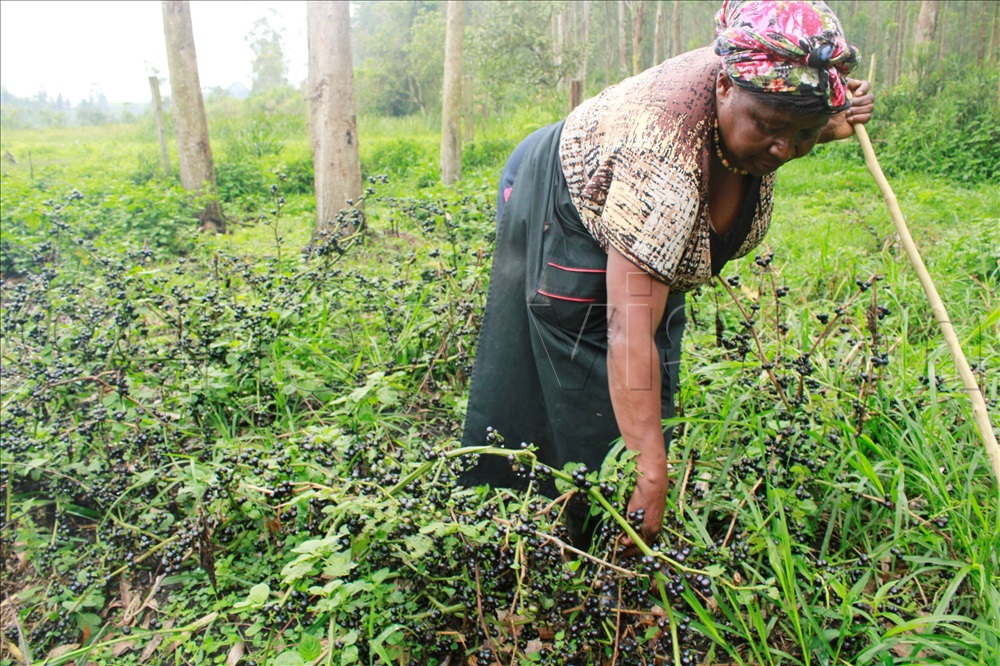By Umar Nsubuga
Black nightshade, locally known as nsugga, is a traditional leafy vegetable that has been grown for centuries across Africa, including Uganda.
Despite being underutilised, this plant offers significant health benefits and is relatively easy to cultivate.
With its short growing period and nutritional richness, black nightshade is gaining attention among small-scale farmers and urban gardeners alike.
How to grow black nightshade
Goretti Bagaya, a famous commercial farmer in Kitumba central division, Kabarole district says growing black nightshade is straightforward, and it thrives in most soil types, making it suitable for small-scale farming and even home gardens.

She says black nightshade grows best in well-drained, fertile soils with high organic matter content. It is adaptable to a range of soil types but thrives in loamy soil with good water retention.
According to Bagaya, the plant needs full sunlight, though it can tolerate partial shade, making it versatile for different planting conditions.
Propagation
She says the vegetable is usually propagated from seeds, which can be directly sown into the soil. It is essential to prepare the seedbed well, breaking up the soil and mixing it with compost or organic manure to improve fertility.
Sow the seeds thinly in rows of about 30 cm apart and cover them lightly with soil. Within about a week, you will notice the seeds germinating.
“After the seedlings grow to around 5-10 cm, thinning should be done to space the plants about 20-30 cm apart, allowing them to develop without overcrowding,” she says.
Fertilisation
Bagaya explains that applying organic manure or compost during planting promotes healthy growth. Top-dressing with additional fertiliser during the growing period can boost yields, particularly in nutrient-poor soils.
Harvesting
According to Bagaya, black nightshade is a fast-growing vegetable that can be harvested within four to six weeks after planting. Once the plant reaches about 15-20 cm in height, you can start harvesting the tender leaves and young shoots.
Health benefits of black nightshade
Despite its simplicity, Sharon Naluwende, a nutritionist at Mulago Hospital says black nightshade is a nutritional powerhouse that offers numerous health benefits.
Rich in Vitamins and Minerals
-The vegetable is particularly high in vitamin C, which helps boost the immune system, and vitamin A, essential for good eyesight and skin health.
-It also contains significant amounts of iron, which supports the formation of red blood cells and prevents anemia, as well as calcium for bone health.
Promotes digestive health
-The leaves of black nightshade are rich in dietary fiber, which aids digestion and helps prevent constipation. Consuming this vegetable regularly can promote a healthy digestive system and support overall gut health.
Anti-inflammatory and medicinal uses
-In traditional medicine, black nightshade is known for its anti-inflammatory properties and has been used to treat conditions like stomach ulcers, skin problems, and respiratory issues. The leaves are sometimes used as poultices to reduce inflammation and soothe skin irritation.
Why more farmers should grow black nightshade
Bagaya explains that despite its health benefits and quick growing cycle, black nightshade is still underexploited by many farmers. Part of the reason is the misconception that it is a wild or less valuable crop compared to popular vegetables like kale or spinach.
However, its resilience, fast-growing nature, and high nutritional value make it an excellent option for farmers looking to diversify their crops.
Moreover, the increasing focus on healthy eating and organic produce presents a potential market for black nightshade, especially in urban areas where people are becoming more conscious of their diet. With the right awareness, this humble vegetable could become a valuable addition to both household gardens and commercial farms.





